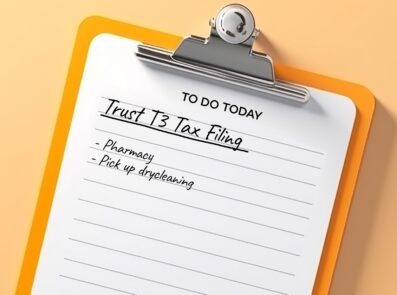Canadian legislation allows some professionals to incorporate. Each province and territory has differing legislation and rules a professional corporation must follow as set out by a profession’s governing regulatory body. This article will explore pros and cons of operating your practice through a corporation in Ontario.
Benefits of incorporation
Tax deferral
The main advantage of operating your practice within a corporation is the ability to defer taxes because of the tax rate differential between corporate and personal tax rates.
The professional income earned within the corporation is taxed at the corporate level when earned, and then taxed again, at the personal level when income is ultimately distributed. By incorporating, the benefit of tax deferral can be achieved by leaving after-tax income in the corporation and deferring the personal tax until funds are drawn from the corporation in the future. To maximize the deferral advantage, after-tax income should be left in the corporation for the long term.
Where income earned from operating your practice is not required personally (for living costs and other personal expenses), it can be retained and taxed in the corporation. The corporate tax rates are lower than individual marginal tax rates if the professional income was earned as a sole proprietor. In Ontario, the highest marginal tax rate for individuals is over 53 percent for 2023. If the professional income earned by your corporation is considered active business income, it is subject to a lower corporate tax rate of 26.5 percent for 2023. Furthermore, if the corporation is a Canadian-controlled Private Corporation (CCPC) throughout the tax year, your corporation may benefit from the Small Business Deduction (SBD) which provides a reduced tax rate on the first $500,000 of active business income (known as the “business limit”) of 12.2 percent for 2023.
The lower corporate tax rates enables more after-tax income within the corporation to be retained for investing, compared to after-tax personal income earned as a sole proprietor. However, it is important to note, this tax deferral benefit is restricted by Federal legislation that reduces the Small Business Deduction if passive investments (such as interest, dividends and capital gains), of the CCPC and its associated corporations exceeds $50,000 annually. The access to the small business tax rate will be eliminated when the annual investment income reaches $150,000. Effectively, the business limit of $500,000 will be reduced by $5 for every $1 investment income earned in excess of $50,000. As such, investment strategies for your corporation and associated corporations should be discussed with your investment advisor to ensure the level of investment income earned does not impact your small business limit or is at least minimized.
Income splitting
Income splitting is a tax strategy to reduce a taxpayer’s overall tax bill by allocating income to family members in lower tax brackets. By shifting income to be taxed at their lower marginal tax rates, the household’s overall tax bracket and combined taxes is effectively reduced, achieving immediate tax savings.


Healthcare Professionals
Advising healthcare professionals—physicians, dentists and specialists—on the very specific financial aspects of running your practice.
Learn more >As legislation for incorporating physicians and dentists allow their family members to own shares of the corporation, income splitting can potentially be achieved by payment of dividends to low-income family members, however the “tax on split income” (TOSI) rules can reduce the benefits of this tax strategy.
TOSI limits splitting certain types of income by a private corporation with family members, including interest, dividends and capital gains. Where TOSI is applicable, income is subject to tax at the highest marginal rate and the individual also loses the ability to claim certain personal tax credits on the split income, such as the basic personal tax credit or tuition tax credit.
The TOSI rules allow for some exclusions if certain conditions are met. These exclusions can be limited for professional corporations, depending on the age of the family member receiving the income and whether the family member is significantly involved in the operations of the practice or business. There is a specific exclusion available for the spouse of a professional who is 65 years of age or older that effectively permits income splitting during retirement.
The TOSI rules do not apply to salaries or bonuses. Payment of reasonable salaries to your family members for services they provide continue to be valid and can provide some benefits from income splitting where the family member’s marginal tax rates are lower. Salaries can be paid to family members without having to incorporate or adding them as shareholders to your corporation.
The Lifetime Capital Gains Exemption (LCGE)
There can be a significant tax break on the capital gains from the disposition of certain private company shares. Each individual resident in Canada can claim an LCGE to shelter capital gains on the sale of shares of qualified small business corporation (QSBC) shares. For 2023 the LCGE is $971,190. Therefore, incorporating your practice may enable you to sell your practice and shelter the growth in the value of your practice from tax up to the LCGE limit.
The corporation must meet certain conditions to qualify as a small business corporation carrying on an active business when the company is sold. This includes very exacting value tests for assets used in the active business at the time of the sale and for the 24-month period prior to any sale of the shares, among other conditions. Planning well in advance of selling your practice is important to ensure the corporation is properly structured and will satisfy the conditions to be a QSBC.
If your family also owns shares of your professional corporation, you and your family may be able to multiply the LCGE available on the disposition of QSBC shares by accessing each person’s available LCGE. If this planning is used, your family members will be entitled to a portion of the proceeds from the sale related to the shares they own.
If you practice as a sole proprietor and are planning to sell your practice, you may be able to claim the LCGE by transferring all or substantially all of your professional assets into a corporation and immediately selling the shares of the newly formed professional corporation.
The ability to sell the shares of your professional corporation may be limited depending on your profession. For example, it is common for a retiring dentist to sell their practice as there is a market demand for dental practices. Dentists starting practice generally prefer to purchase an established practice. In recent years, the dental profession has seen expansion efforts by large dental consolidators to grow their dental network by purchasing practices. Both examples creating a strong and increasing market demand for the sale-and-purchase of dental practices.
Financing the purchase of a practice
It can be more advantageous to incorporate a professional corporation to purchase the practice, rather than as a sole proprietor, to take advantage of the lower corporate tax rates. After-tax corporate income would be used to finance the purchase and service the principal loan payments, rather than using after-tax personal dollars taxed at the higher marginal tax rates for an individual. If you are purchasing a practice, whether as an asset sale, share sale or hybrid acquisition, you should speak with a qualified tax advisor. It is important to have sufficient time to plan and properly setup the corporation in advance of entering into any sale and purchase agreement.
Remuneration planning
With the use of a professional corporation, you can plan and personalize your remuneration by drawing salary, dividends and/or bonuses. The flexibility to choose the type of renumeration will allow you to benefit from tax deferral and prioritize goals important to your overall planning and retirement. This may include drawing a salary to create RRSP contribution room, maximizing Canada Pension Plan contributions to access future pension benefits, or ensuring the child care deduction can be optimized and claimed by you or your spouse.
Limited liability
By practicing within a professional corporation, liability may be limited with respect to regular creditors (such as landlords and suppliers), such that corporate shareholders are not responsible for the liabilities of the corporation unless they have provided personal guarantees.
Personal liability related to professional misconduct or professional negligence is not limited in any way by practicing within a professional corporation. In addition, as a director of your professional corporation, you could be personally liable for certain corporate liabilities, such as unremitted trust monies collected on behalf of Canada Revenue Agency (CRA), for example payroll withholdings or GST/HST payable.
Disadvantages of incorporation
Increased compliance, administration and costs
Your professional corporation is considered a separate entity from yourself. With that comes additional time to manage the administration of the corporation as well as ensuring annual tax compliance and reporting requirements with CRA is met.
The corporation is required to keep corporate records including articles of incorporation, by-laws and their amendments, as well as maintain and document minutes of meetings and resolutions adopted by its directors. For example, directors of the corporation need to pass a resolution to declare and pay dividends. It is recommended the corporate record book be maintained and updated annually by your corporate lawyer so the corporate records remain current.
The corporation must also prepare and maintain adequate accounting records including bank statements, credit card statements, invoices and receipts to support the bookkeeping. The corporation should keep its accounting records for a period of six years after the end of the financial period to which the accounting records relate.
The corporation is required to file a corporate income tax (T2) return every tax year whether or not there is any tax payable. If the corporation pays salaries to employees (including yourself), it is required to file a T4 return known as the Statement of Remuneration Paid. If dividends are paid to a shareholder in the year, the corporation is also required to file a T5 information return known as Return of Investment Income. Other tax compliance requirements may be required on a case-by-case basis.
In general, the administration and compliance will be more complex and costly when operating within a corporation compared to a sole proprietorship, incurring professional fees for accountants and lawyers to assist with these new responsibilities.
Extracting funds from the corporation
As a sole proprietor, the professional income you earn is reported personally and the after-tax income can be accessed for living expenses, investing personally or any other use.
When you have incorporated your practice, the professional income is now earned by the corporation. The after-tax income now belongs to the corporation, not by you personally. You can access corporate funds for personal expenses by drawing a salary, dividends and/or bonuses which will trigger personal tax.
Making the decision to incorporate
Everyone has colleagues who have long ago established a professional corporation; however, before you make the decision it is important to review the benefits and disadvantages of incorporation specific to your objectives as every individual situation is unique and incorporating will have an impact on your practice going forward.







